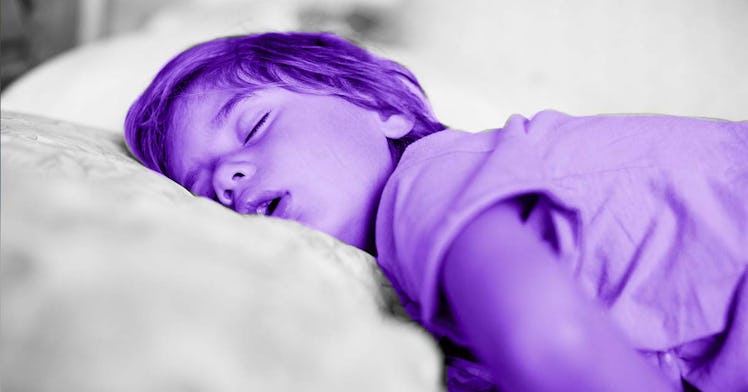Snoring In Children Linked To Behavioral Issues Like ADHD, Study Says
Trouble breathing during sleep leads to symptoms that are often mistaken for ADHD.

Snoring is linked to a host of
behavioral problems in kids, including hyperactivity, lack of focus, and learning difficulties. A new study has found for the first time a possible explanation why: Snoring may actually change the shape of kids’ brains.Snoring three or more nights per week may change the shape of a child’s frontal lobe, the part of the brain responsible for higher reasoning skills, according to a new study of more than 10,000 kids ages 9 and 10. Kids who snored had smaller volumes of information-processing gray matter in multiple regions of their frontal lobe, including in regions that are involved in problem-solving, impulse control, and social interactions. Kids who snored more also had more behavioral issues. The findings suggest that snoring may cause behavioral problems, but it’s impossible to be sure without more research.“These brain changes are similar to what you would see in children with attention deficit hyperactivity disorder. Children have loss of cognitive control which is additionally associated with disruptive behavior,” study lead author Amal Isaiah, MD, PhD, a professor of pediatrics and head and neck surgery at the University of Maryland School of Medicine, said in a press release. Snoring is often a sign of obstructed breathing. When kids have trouble breathing during sleep, they may not get enough oxygen to their brains. This could lead to changes in brain shape and thus behavioral issues.Luckily, these problems may be reversible. “We know the brain has the ability to repair itself, especially in children, so timely recognition and treatment of obstructive sleep disordered breathing may attenuate these brain changes,” said study co-author Linda Chang, MD, MS, a professor of diagnostic radiology and nuclear medicine at the University of Maryland School of Medicine.The researchers suggest that parents take children who habitually snore to get seen by a doctor, who may test them for obstructive sleep-disordered breathing, which is commonly treated by removing the tonsils and adenoids. This condition is not uncommon, affecting up to 10 percent of children. It’s often misdiagnosed as ADHD and treated with stimulants.“If you have a child who is snoring more than twice a week, that child needs to be evaluated,” Isaiah said. “We now have strong structural evidence from brain imaging to reinforce the importance of diagnosing and treating sleep disordered breathing in children.”